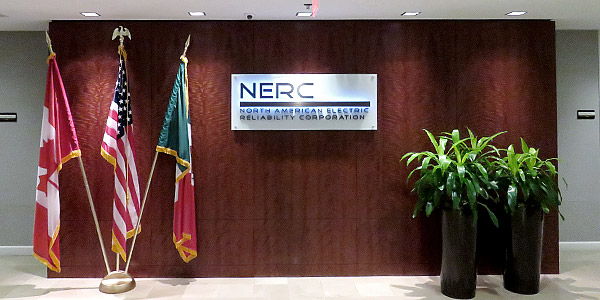NERC’s Standards Committee voted Wednesday to reject the standard authorization request (SAR) for Project 2020-01, submitted by the System Planning Impacts of Distributed Energy Resources (SPIDER) Working Group last December to revise reliability standard MOD-032-1 (Data for power system modeling and analysis).
Wednesday’s meeting represented the second attempt to bring the SAR to the committee for approval, after it was removed from the agenda of last month’s meeting to give members more time to review comments received during the informal comment period that ended Apr. 24. (See “SAR Team Members Sail Through,” NERC Standards Committee Briefs: Nov. 19, 2020.) Following the vote, the SAR will be sent back to the SPIDER group with a written explanation for its rejection.
Marty Hostler, reliability compliance manager for the Northern California Power Agency, made the motion to reject. Hostler said he was seriously concerned about the SAR drafting team’s response to the informal comment period — or rather the lack thereof, as the team made no changes to the SAR between the end of the comment period and submitting it for approval. Along with Sean Bodkin of Dominion Energy, who seconded his motion, Hostler said that even though the team was not required to respond to the many negative comments received, it was unacceptable to ignore them.
Representatives from NERC pushed back on the motion unsuccessfully. Howard Gugel, NERC’s vice president of engineering and standards, suggested that industry participation in the comment period was low because the SAR had been endorsed by the Planning Committee, replaced earlier this year by the Reliability and Security Technical Committee (RSTC).
“I would not state that just reading the comments … necessarily indicates that industry is not in support of it,” Gugel said. “[My] opinion is that [because] the RSTC endorsed it, they felt that they didn’t need to comment on it.”
NERC’s Chris Larson, who served on the SAR drafting team, added that it did take note of the comments but saw no need to revise the SAR, as it expected to be given “appropriate flexibility” to address the concerns after being made the standard drafting team (SDT). This argument did not convince the committee, however. Hostler said there was no good reason for delay when the team knew action would be needed eventually, while Robert Blohm of Keen Resources said this logic created a mechanism by which “you could avoid rejecting any SAR.”
“You could say, ‘Well, yeah, there’s a lot of opposition, but trust us, we’ll take care of it … when we have to do the drafting,’” Blohm said. “[It] kind of lessens the impact of the whole SAR development process.”
Smoother Road for Project 2020-04
Hostler raised a similar objection to the SAR for Project 2020-04 (Modifications to CIP-012), asking that the drafting team be given more time to revise the document in reaction to concerns raised in its informal comment period, which ended in May. This time he failed to gain support, however, with Bodkin noting that industry comments in this case were not as negative or numerous as those received for the Project 2020-01 SAR. Bodkin’s motion to approve the SAR and appoint the SDT passed.
Bodkin also successfully moved to accept the recommendation of NERC’s Standards Efficiency Review project to review the ERO’s reliability standard template. The evaluation will be carried out by the Standards Committee Process Subcommittee (SCPS) — which Bodkin chairs — and is intended to “ensure the template facilitates a systematic approach to developing an effective and efficient results-based standard.” The SCPS will also review SDT training modules and reference manuals to remain consistent with changes to the template.
PMOS Charter Change Questioned
The committee agreed to revise the scope document for the Project Management and Oversight Subcommittee (PMOS), primarily intended to “allow for better alignment” with the committee’s charter.
Bodkin questioned Charles Yeung, executive director for interregional affairs at SPP and chair of the PMOS, about a note added to the new charter that meetings are open to any interested parties, “subject to any preregistration meeting requirements included in the meeting announcement.” He worried that this might discourage industry participation in NERC, though Yeung suggested that the benefits could outweigh this risk.
“[As] a chair in a meeting, if somebody didn’t preregister [and just walked in], wouldn’t you want to be able to turn them away?” Yeung asked.
“Nope. As the chair of the SCPS, if somebody comes in, if they’re an interested party in the subject matter and they want to participate, I would definitely invite them,” Bodkin replied. “[If], say, somebody just came in to heckle, I could eject them under the professional conduct policy that we have. But I would not want to prevent somebody who actually has a vested interest from coming in just because they didn’t register.”
Others pointed out that the Standards Committee charter itself contains identical language in its section on meetings. Gugel said this wording is not intended to discourage participation but to comply with security restrictions that hosting entities might have in place; for example, some companies require background checks for anyone entering their premises. The new charter, including the questioned language, was approved by the committee.






